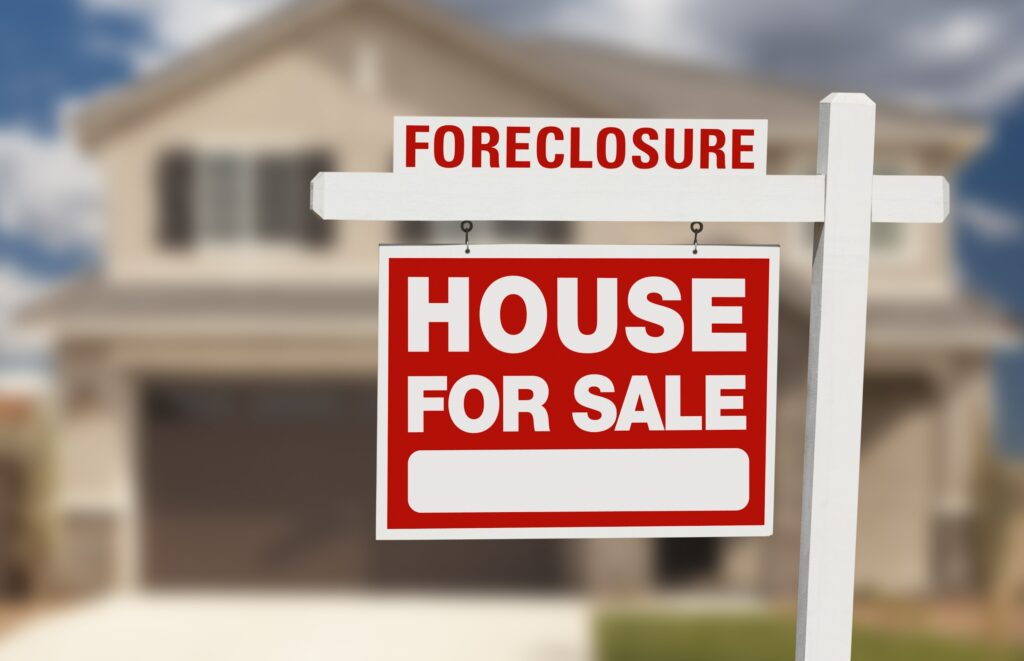 There is a high chance that mortgage payments are one of the most significant expenses in your family’s budget if you are a homeowner. Unfortunately, missing your mortgage payment is much more serious than skipping out on some of your other bills. If you fall too far behind on payments, your mortgage lender will most likely initiate the foreclosure process on your home.
There is a high chance that mortgage payments are one of the most significant expenses in your family’s budget if you are a homeowner. Unfortunately, missing your mortgage payment is much more serious than skipping out on some of your other bills. If you fall too far behind on payments, your mortgage lender will most likely initiate the foreclosure process on your home.
As per your mortgage agreement, the bank or mortgage lender can take possession of your home through foreclosure if you default on your mortgage payments. Depending on the state, there might or might not be a court hearing where the borrower can fight the foreclosure claims.
But, the situation is not as hopeless as you might think. There are several options available for homeowners to mitigate their losses and even find a way to avoid foreclosure and keep their homes.
6 Options for Homeowners Facing Foreclosure
Apply for Government Assistance
Depending on what kind of loan you have and whether your state or lender has implemented any mortgage relief initiatives, there are a lot of options available for homeowners struggling to make their mortgage payments.
For example, federally-backed loans such as VA loans now offer new alternatives for mortgage borrowers exiting COVID-19 forbearances. This allows homeowners to resume their regular monthly mortgage payments without first having to catch up on payments missed during a forbearance. This program is available until October 28, 2022.
Fannie Mae, Freddie Mac, and the USDA also offer various other options. To find out if you qualify for these programs, get in touch with your lender.
If your loan is not government-insured, your state may offer forbearance or foreclosure protections. Visit the U.S. Department of Housing and Urban Development website and check if any of the programs designed to help homeowners apply to your situation.
You can also talk to your loan provider to find out what type of mortgage relief is available in your circumstances.
Reinstating the Loan
If you fall behind on your mortgage, your bank will let you know that you’re in default and that the entire loan is due right away. Though this is technically true, some states allow borrowers who are late in making payments to reinstate the loan—bring it to current—by a certain date.
This is a great option for homeowners who miss a payment due to a temporary setback and are confident they can resume making regular payments. For loan reinvestments, make sure to request permission well before a foreclosure sale.
When reinstating your mortgage, you also have to pay interest and late fees on top of the missing payments. Your lender will be able to give you the reinstatement quote to let you know the exact amount you need to pay to become current. They will also provide a due date by which you have to make payments. If you miss this deadline, you will have to get another quote, which will obviously be higher than the first one.
Refinancing Your Loan

If you aren’t too far behind on your payments and your life hasn’t gone through a major upheaval like losing a job, refinancing is your best option. Your payments may go down substantially if interest rates are much lower than they were when you first bought the house.
If not, you might still be able to reduce your monthly payments by getting a long-term loan. Though this might keep you in debt longer, it is the best choice if you’re looking to protect your credit score and keep your house.
Remember, this won’t work if your house value has significantly gone down. Your new loan must be enough to pay off the entirety of your current loan.
The refinancing process is the same as the one you followed to get your original loan. It will take 30 to 45 days, and at closing, your old loan will be paid off, and you will begin paying as per the terms of the new loan.
Loan Modification
The loan modification process allows you to adjust the loan terms to make it easier to pay. The modification can be either temporary or permanent and can include a lower interest rate, longer payoff period, or any other combination.
Loan modifications are one of the more popular foreclosure options—even banks prefer them to taking your home. Remember, this is only a temporary solution as most modifications may require a balloon payment down the road.
You need to request for a loan modification within 120 days from when you get the notification of delinquency. Once you’ve applied, the lender is prevented from proceeding with the foreclosure by law.
The bank usually takes about a month to review the application and make a decision. Some banks offer a trial period to verify you can make the payments after the loan has been modified.
Selling Your Property
If you have no way of repaying the mortgage or are just looking for a way out of the situation, selling the property is a viable option. In cases where you don’t have enough equity to sell your house, you can opt for either a deed in Lieu of Foreclosure or a short sale.
If the homeowner opts for deed in lieu of foreclosure, this means they’re surrendering the deeds of their house to the lender in return for their loan being forgiven. This can help people who are unable to refinance or modify their existing loan.
Mortgage companies usually prefer a short sale, where the house is sold for less than what is owed. Usually, the house has to be on the market for a minimum of 90 days before the bank will consider a deed in lieu.
Defend in Court
If you believe there is an error or that your lender has committed fraud, you can defend yourself in court when the bank sues you or even countersue the bank. A foreclosure can be fought off in court under five main circumstances:
- Improper Service of Notice
- Breach of Contract
- Improper Closing of Loan
- Defective Chain of Title
- Fraud and Misrepresentation
This is a lengthy process that can take a couple of months to several years, depending on the case details and state laws. Talk to a foreclosure attorney to find out if this is the right course of action.
Getting a notice of foreclosure does not have to be the end. Talk to the experts at Vilt Law, P.C., Houston, to find out if there is a way for you to avoid foreclosure and save your home without filing for bankruptcy. Get in touch with us through our website or call us at (713) 840-7570.
